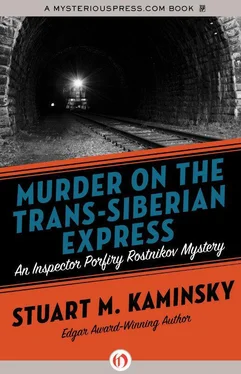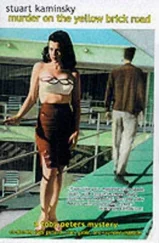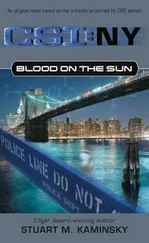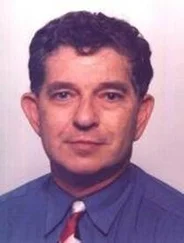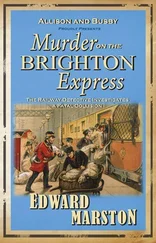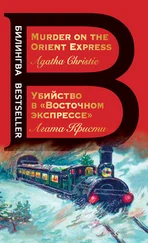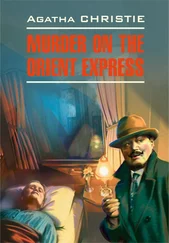Stuart Kaminsky - Murder on the Trans-Siberian Express
Здесь есть возможность читать онлайн «Stuart Kaminsky - Murder on the Trans-Siberian Express» весь текст электронной книги совершенно бесплатно (целиком полную версию без сокращений). В некоторых случаях можно слушать аудио, скачать через торрент в формате fb2 и присутствует краткое содержание. Год выпуска: 2012, Жанр: Полицейский детектив, на английском языке. Описание произведения, (предисловие) а так же отзывы посетителей доступны на портале библиотеки ЛибКат.
- Название:Murder on the Trans-Siberian Express
- Автор:
- Жанр:
- Год:2012
- ISBN:нет данных
- Рейтинг книги:3 / 5. Голосов: 1
-
Избранное:Добавить в избранное
- Отзывы:
-
Ваша оценка:
- 60
- 1
- 2
- 3
- 4
- 5
Murder on the Trans-Siberian Express: краткое содержание, описание и аннотация
Предлагаем к чтению аннотацию, описание, краткое содержание или предисловие (зависит от того, что написал сам автор книги «Murder on the Trans-Siberian Express»). Если вы не нашли необходимую информацию о книге — напишите в комментариях, мы постараемся отыскать её.
Murder on the Trans-Siberian Express — читать онлайн бесплатно полную книгу (весь текст) целиком
Ниже представлен текст книги, разбитый по страницам. Система сохранения места последней прочитанной страницы, позволяет с удобством читать онлайн бесплатно книгу «Murder on the Trans-Siberian Express», без необходимости каждый раз заново искать на чём Вы остановились. Поставьте закладку, и сможете в любой момент перейти на страницу, на которой закончили чтение.
Интервал:
Закладка:
I am a cossack, he told himself, a warrior of the Dnieper and the Don.
“We are a community of Russians, Tartars, Germans, Serbs, Georgians, Greeks, and Turks. Warriors. I know what you are doing. You are testing me to see if I am a real cossack, if I am worthy to meet the challenge, be a worthy warrior.”
He received no answer but the sound of his own voice and the shock of metal vibrations from the music.
“I am going to go to a cossack camp,” he said. “I am going to learn to fight with my fists, with the shasqua, saber, and the kinjal, lance.”
The music seemed to get louder.
“I will ride bareback, learn to fire guns, cross rushing rivers, sing cossack songs, embrace Christianity, and wear a true cossack uniform. You know why I am the Naked Cossack?”
The music grew even louder. Misha was talking to himself.
“Because I am not yet worthy of the uniform,” he said so softly that even he could not hear himself.
He tore at the corner of the mattress. Frenzy. Another idea. There was padding inside. Some material. Cotton, wool. He rolled two balls of the material and stuffed them in his ears. He did it openly, not trying to hide. He wanted whoever was watching to see this as an act of ingenuity and not as an indication that their torture was working. He folded his arms, crossed his legs, and stared at the door.
The sound was muted but not stilled. The music continued. He dozed in exhaustion and then awoke. His plan had to take place soon or it would be too late. He would be too tired or too crazy.
He had to be ready to move quickly, silently.
Misha had noticed something. Not for the first ten or fifteen times, but after that, when the lights suddenly went off and the music stopped while his bowls were taken and relatively clean ones placed in front of his bars. Whoever made the exchange always reached over and checked the door to his cell with a quick pull to be certain that it was still firmly locked.
Misha had tried it. The cell door was surely locked and he had no tools to work on it. It could not be long now. Someone would come. The ritual would be repeated. He would be ready. He had actually practiced walking barefoot, silent, learning the exact number of steps from the wall to the bars of the cell so that he could move across the floor in total darkness.
While he was going over his plan again, the lights went out. The music stopped. He had placed his bowls very close to the bars. Whoever came would have to move close. He could hear the door beyond his cell open, hear the footsteps, sense when the person was about to reach down. Misha got to his feet, moved quickly, feeling his testicles beating against his thighs.
Hand through the bar, ready. The sound of his jailer reaching for the door.
Misha struck, reached through the bar, grabbed the wrist. The wrist was not thick, but he could not hold it as the jailer pulled away with a grunt and gasp, dropping metal bowls that clattered to the floor.
The jailer said something through clenched teeth. “Propezdoloch, clever bastard.”
Misha thought he recognized the voice. He croaked defiantly, “I am going to get out.”
And the voice of his jailer came back, “ Ni khuya, no way.”
The jailer moved quickly to the door at the end of the room, not stopping to pick up what had been dropped, not wanting to put a hand into or touch the toilet bowl.
The outer door opened and closed and Misha was alone again, but this time he had something to work with. He had recognized the voice of his jailer. He would not utter the name. He would pretend that he did not know. The darkness of the visits was still his protection.
They would keep it dark when they entered for only two reasons: to help drive him mad or to protect themselves from Misha identifying them when he was free. Which meant that Misha had a chance of being free. It was slim hope, but he clung to it, and the knowledge that he knew who his captors were.
The lights came on. The music did not. Misha looked at the mess outside his cell. One bowl, the one which had held water, was on its side against the far wall. The food bowl was overturned within his reach. Miraculously, his toilet bowl had not been moved.
In addition, there were three fresh bowls within reach just beyond the bars. Misha reached through the bars and worked the food and drink inside.
He was hungry now, thirsty too. There was much to think about. He could fashion new earplugs while he considered his plight.
He was not being tested by cossacks, but he would behave as if he were a cossack. He would imagine himself in full blue uniform and long blue coat, leather boots, and a fur hat.
Misha felt a chill. He coughed once, took a drink of water, and retreated to the wall and mattress. He had much to do.
“Your name is Anatoly Zagrenov,” said Karpo, looking down at the sheet on the badly scarred wooden table.
“People call me Bottle Kaps,” the young man said. “I call myself Bottle Kaps.”
They were in a small room in a local precinct police station. There was nothing in the room but a table and two chairs. A single window, quite small and quite dirty, about seven feet up on one wall let in a little light. The walls were a thin brown with spots and smears of dirt. The floor was rough, cracked gray concrete. There was no two-way mirror. There was but one door and any police officer passing the room ignored whatever sounds, pain, anguish, pleading, or cries seeped into the dark corridor.
The young man who wanted to be called Bottle Kaps had moved to the chair to sit. Karpo motioned to him to remain on his feet. The detective also remained standing on the opposite side of the table with the sheet of paper before him.
“You are nineteen years old,” Karpo went on. “Your mother is dead. Your father lost his job two years ago as a janitor in a plastic factory.”
“He is a drunk,” the young man said. “A parasite.”
“In contrast to you,” said Karpo.
“I work.”
“At what?”
“Things,” the young man said. “I know cars. I can fix things. But only for the right people.”
The young man rubbed the top of his head. He hadn’t shaved in about a day. Prickly small hairs were starting to grow.
“You are going back in the obyezannik, the monkey cage with the drunks and thieves,” said Karpo. “With Sergei.”
“Sergei?”
“Sergei Topoy, Heinrich,” said Karpo.
“Sergei Topoy,” the young man repeated with a smile.
“You will remain in the cage until you answer my questions and I believe your answers, Anatoly,” said Karpo.
Anatoly cocked his head to one side, spread his legs slightly, and clasped his wrist behind his back, a posture meant to show that he had no intention of cooperating.
“What happened to Misha Lovski?”
“I told you. We went out into the street. He just went his way.”
“You are lying,” Karpo said calmly.
“You may think what you like,” said Anatoly.
“A boy was murdered near the Mahezh Shopping Center yesterday, a rapper,” said Karoo.
The Mahezh was an underground mall off of Red Square where Russian rappers in loose-fitting parkas and baggy pants gathered.
“So?”
“You killed him,” said Karpo.
“I … I was nowhere near there yesterday. I have never killed anyone. I was with Heinrich and friends all day. We …”
“But you killed the boy,” said Karpo.
“No.”
“I have a policeman who will testify that he saw you do it,” said Karpo.
“I did not kill anyone,” Anatoly said. “Ask Heinrich. Ask …”
Karpo moved to the door and opened it. A young uniformed policeman stepped inside. Karpo nodded toward Bottle Kaps and said, “Is that him?”
Читать дальшеИнтервал:
Закладка:
Похожие книги на «Murder on the Trans-Siberian Express»
Представляем Вашему вниманию похожие книги на «Murder on the Trans-Siberian Express» списком для выбора. Мы отобрали схожую по названию и смыслу литературу в надежде предоставить читателям больше вариантов отыскать новые, интересные, ещё непрочитанные произведения.
Обсуждение, отзывы о книге «Murder on the Trans-Siberian Express» и просто собственные мнения читателей. Оставьте ваши комментарии, напишите, что Вы думаете о произведении, его смысле или главных героях. Укажите что конкретно понравилось, а что нет, и почему Вы так считаете.
